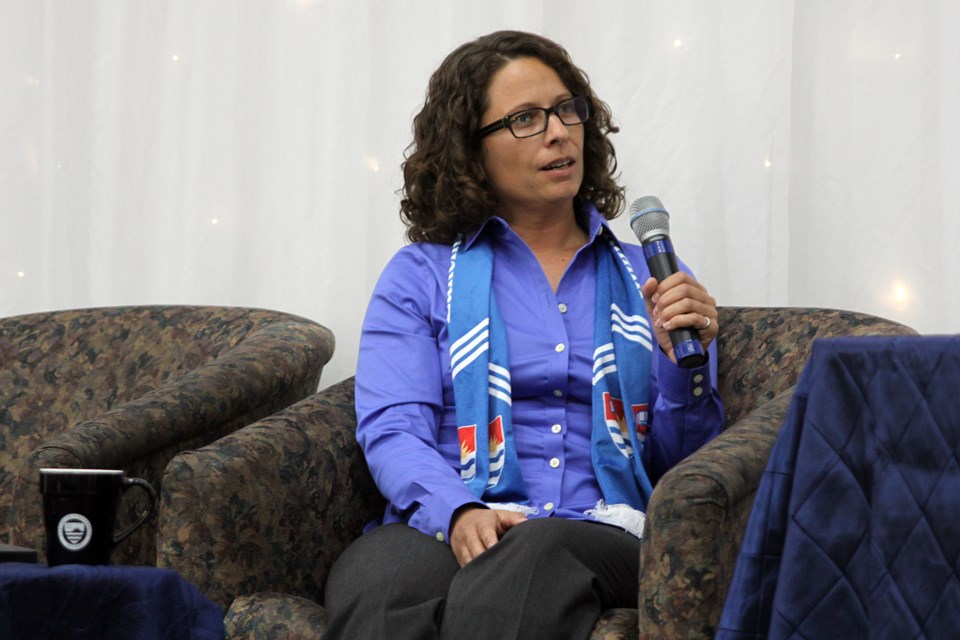THUNDER BAY – Colette Lepage has literally seen her work taken to space.
A NASA engineer who worked on the final servicing mission for the Hubble Space Telescope and is now part of the team developing the James Webb Space Telescope at the Goddard Space Flight Center, she can trace her roots back to Lakehead University.
Originally from Sudbury, Lepage transferred to Lakehead after receiving a three-year diploma from her hometown Cambrian College and graduated in 1999 with a chemical engineering degree.
Highlighted as a Lakehead graduate during the university’s annual report to the committee on Tuesday, Lepage said the sky is the limit for Northern Ontario students.
“Inherently there’s always fear when you’re getting out in the world for the first time. It can seem ominous and scary at the time,” Lepage said.
“I just kept going forward. I felt plenty of fear and I’ve had a lot of failures but it’s also really important to just get up and just keep going and learn from the mistakes you’ve made so you can plot the next course and hopefully be successful.”
Lepage said the hard work and long hours of the program, combined with the camaraderie and the tight knit nature of Lakehead students and professors helped build the path to NASA.
In particular, she credited one professor – Inderjit Nirdosh – for playing an integral role in helping students prepare their professional skills to bring to the field.
“I was terrible at public speaking and I’m still really nervous when I have to get up and talk but when I first started I really dreaded having to do it,” Lepage said.
“He knew in industry you’re going to have to do a lot of public speaking and it was important for him to come well prepared, this is how your slides should look and this is how you present yourself and dress. Those were the solid building blocks we learned while we were there, the pragmatic part of having a career.”
Lakehead University president Brian Stevenson said Lepage’s story – as well as those of other graduates – are bright examples for current students.
“I think (current students) find it inspirational. I think they find they identify and they can see where their future could go if they want to do that,” Stevenson said.
“It’s very important for current students to see what the achievements are of alumni who have gone on and done some spectacular things.”
Lepage was able to witness the launch for that final servicing mission for the Hubble in 2009 and then almost immediately was part of the team tasked with developing its successor, which is the most powerful telescope and targeted to be launched in 2019. The Webb telescope, a partnership between NASA, the European Space Agency and the Canadian Space Agency, was fully integrated and moved out of the Goddard Space Flight Center in Maryland earlier this year.
“That was a pretty amazing feeling. I got to see that from the very, very beginning to eight years later to the point where it’s at which is a huge, huge milestone,” Lepage said. “It was quite a sense of accomplishment to be part of that team.”
